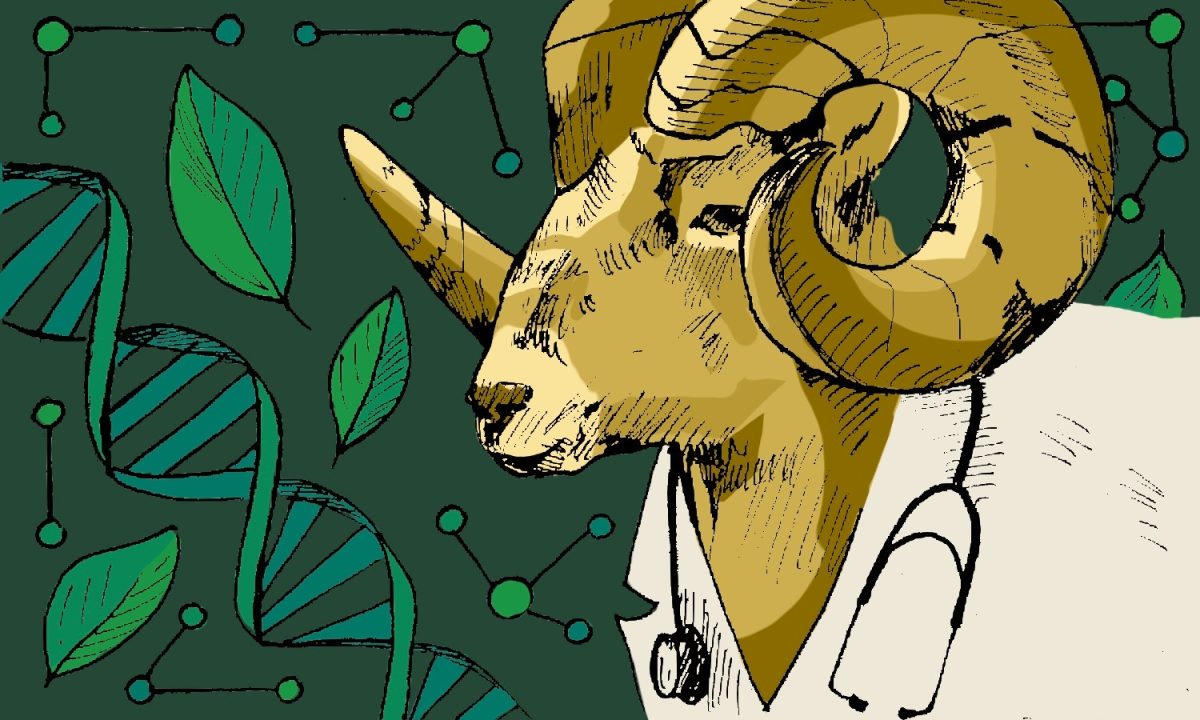The Borlee Lab at Colorado State University is situated in the microbiology, immunology and pathology department. The Borlee Lab tests Colorado air to discover more about the collection of microorganisms in the air. This microbiome of air is scientifically known as the aerobiome.
Borlee researchers aim to uncover valuable insights about the bacteria in the air, utilizing their findings to develop solutions like antibacterial products and vaccines while also addressing environmental concerns. With a strong emphasis on undergraduate research experiences and outreach, the Borlee Lab not only enhances scientific understanding but also fosters public knowledge on microbes.
The Borlee Lab works within a network called Biology Integration Institutes: Regional OneHealth Aerobiome Discovery Network, a regional interdisciplinary research group funded by the U.S. National Science Foundation. BROADN includes researchers from several institutions: CSU, CSU-Pueblo, the University of Colorado Boulder and Doane University. Brad Borlee, principal investigator of the Borlee Lab, assumes multiple roles in BROADN.
“Our OneHealth approach facilitates collaboration with epidemiologists, atmospheric scientists and engineers to inform our research, assess environmental risks and predict and prevent outbreaks.” -Brad Borlee, Borlee Lab principal investigator
“We focus on how bacteria become aerosolized, their behavior once they are airborne and their survival in such an extreme environment,” Borlee said. “Our goal is to understand how this information connects to environmental, human and animal health and how we can intervene or use these bacteria to our benefit.”
The structure and characteristics of airborne bacteria play a crucial role in influencing weather patterns and human and animal health. These bacteria face extreme challenges in the air, such as temperature fluctuations, high UV exposure and dehydration. Understanding how bacteria adapt to these conditions is essential for exploring their impacts.

A benefit some airborne bacteria have is the ability to catalyze ice formation. This behavior contributes to cloud formation, thus influencing weather patterns and plant health, and is a focus of one project in the Borlee Lab.
“This research aids in understanding weather patterns and climate,” said Eleah Flockhart, Ph.D. student and researcher in the Borlee Lab. “It also has agricultural implications, as many bacteria that promote ice formation are plant pathogens. They can cause frost damage, which poses a significant concern for crop production.”
Airborne bacteria can also cause disease. One specific type, Burkholderia, is the focus of another project in the lab because of its rising prevalence and potential to induce human illness.
“There’s a pattern that’s been observed with this bacterium becoming aerosolized, somehow surviving in the air and then causing human disease,” Ph.D. student Sam Golon said. “Understanding how this significant pathogen is aerosolized and survives in the air allows us to intervene in the future.”
Golon has an additional project focusing on another airborne bacteria: Pseudomonas aeruginosa.
“We’re investigating the traits that allow this bacterium to become aerosolized, focusing on a compound they produce that disrupts surface tension,” Golon said. “We also want to understand how this compound may contribute to their survival once airborne.”
Pseudomonas aeruginosa is of interest to the Borlee Lab because it makes up a large part of the aerobiome. Understanding the behavior of this bacterial species can give key insights to how microbes in the air affect the ecosystem.
“This research is basic science or foundational science, which is the necessary foundation for application-driven science where we find solutions,” Flockhart said.
Through their work with BROADN and their OneHealth approach to research, the Borlee Lab is able to collaborate with other scientists and professionals to expand their research’s impact.
“Our OneHealth approach facilitates collaboration with epidemiologists, atmospheric scientists and engineers to inform our research, assess environmental risks and predict and prevent outbreaks,” Borlee said.
Taking their research beyond the aerobiome, the Borlee Lab also has a project focused on vaccine development.
“We’re developing new vaccines in collaboration with (CSU Professor) Raymond Goodrich to protect vulnerable populations in less-developed areas from bacterial pathogens that cause diarrhea,” Borlee said. “Our goal is to provide solutions for those lacking access to clean water and health care, addressing global epidemics like cholera and E. coli.”
Not only does the Borlee Lab contribute greatly to the scientific community through its research, but it also enriches the academic environment by providing undergraduate research experiences through the Research for Undergraduates program with BROADN. Additionally, the lab supports the Fort Collins community by collecting many of its air samples locally, fostering local engagement in environmental issues.
“My favorite thing is that the students are identifying bacteria that we haven’t seen before,” Borlee said. “It really inspires me when students become enthusiastic about science and then share that enthusiasm and what they’ve learned by mentoring other people.”
Borlee expanded on the importance of community engagement.
“One of the missions in my lab is to be better stewards of science, to communicate it more effectively to our community and to prevent it from being mistranslated,” Borlee said. “Informing the public on our research and its importance is key to bridging the gap between hard science and common knowledge.”
Reach Paige Gruber at science@collegian.com or on Twitter @CSUCollegian.











